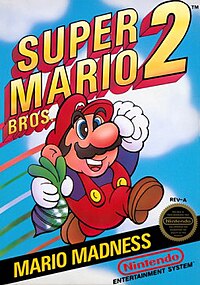I loved
all of the characters on the show, but Prince Zuko was my very favorite. I’ve already blogged about him before as
being an awesome antagonist, which he was especially in book 1, but when I got
the letter Z in the A to Z challenge, I couldn’t resist doing another Zuko
post. :)
There
are going to be some spoilers, so if you haven’t seen the series and want to
(and you should want to because I promise that even though it is a cartoon it
is really, really good), you might want to stop reading here and come back when
you’ve finished.
Zuko
starts out as an antagonist, but I think by the end of book one, it is pretty
clear that he is more than that. The story
is as much Zuko’s as it is Aang’s, and I believe that they are really both the
protagonists each with their own paralleling and intersecting story lines and
character arcs. This time I want to talk
about Zuko as a protagonist.
I love
stories of redemption, and I love stories where two people on different sides
become friends. I’ve read and watched
many stories with these themes, but IMO, no one has done it better than Avatar.
Here are
three things I love about Zuko’s redemption story arc.
1. Even when he changes sides, his goal remains
the same. He always wants the same
thing, to restore his honor. His father,
the Fire Lord, banished him in dishonor and told him he had to capture the
Avatar in order to restore his honor. That
is the fuel that drives him, that makes him such a relentless antagonist to
Aang and his friends. When he finally
changes sides, Zuko still wants to regain his honor, and it is his view of what
honor is that has really changed. He
realizes that no one can give him honor, he has to earn it by doing the right
thing and restoring the balance the Fire Nation has destroyed. He joins team avatar to not only regain his
honor, but the Fire Nation’s as well.
Why
this is important- Zuko goes through big changes, but at the core he hasn’t
changed that much. What defines him does
not change, and this helps him stay consistent.
No matter how much he changes, he’s always Zuko deep down.
What
we can learn from this- A character doesn’t have to maintain the same goal like
Zuko, but something at the core shouldn’t change. In the end, he/she still need to be the same
person.
2. Love
opens his eyes, and no it is not the love of Katara like a lot of team Zutara
fans wish (there is no romance between these two characters, but that doesn’t
stop some fans from dreaming). It is the
love of his Uncle Iroh. Iroh is one of
the best characters ever written IMO.
Zuko would have never found his way without the patient, ever-hopeful,
and unconditional love of Uncle Iroh.
But it is important to note that Zuko doesn’t change for Uncle Iroh, but
is inspired to change because of what Uncle Iroh shows him.
Why
is this important- Zuko would never have
changed if his uncle hadn’t opened his eyes and helped him see what was really
important. A character can’t be redeemed
without some sort of inspiration, and love can be a powerful inspirer.
What
we can learn from this- I think a lot of
redemption romances misses the mark when the redeeming hero (it’s usually the
hero, but it could be the heroine) only changes for the heroine. Love can help open his eyes, but real change
has to come from within or it will never stick.
3. Zuko
got everything he wanted before he walked away.
The episode The Crossroads of Destiny drove me nuts at first. I was so ready for Zuko to join the avatar,
and it looked so much like he was going to, but then he joined up with his
sister and helped her nearly kill Aang.
But I realized how much more powerful it was for him to have regained
his honor in his father’s eyes and his place as heir in the fire nation, to get
everything he thought he wanted, and then give it all up to do what he believed
was right.
Why
is this important- The change was far more profound when Zuko gave up
everything he ever wanted.
What
we can learn from this- We have to make
our characters make those tough choices.
Giving up nothing to switch sides is easy but giving up everything to
switch sides shows a much higher level of commitment.
4. The
change was realistically shown. The
metaphorical journey Zuko went on was pretty amazing. There were ups and downs, steps forwards and
steps backwards, there was frustration and anger and confusion. It really was a story about someone trying to
figure out who he was and where he belonged.
I loved the episode when he saved Aang from General as the blue spirit,
and the episode when he helped the Earth Kingdom boy, and that moment when he
stood on top of the mountain in a lightning storm begging the universe to
strike him so he could prove he was strong enough to deflect it, and when he
confronted his father and proved that he could.
It really showed the small and big moments that changed him.
Why
this is important- Change is never easy.
What
we can learn from this- If you really want to write a redemption story, you are
going to have to really show it. No
short cuts.
That is
all I got. I’ve really enjoyed this A to
Z challenge. It has been fun reading my
fellow prosers posts as well as many of the other participants in the A to Z
challenge. So thanks everyone for a fun
month.
~MaryAnn























